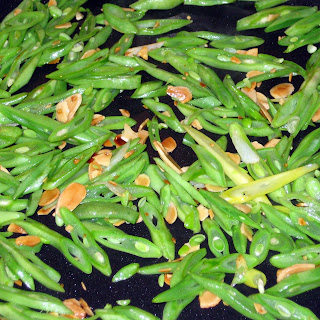Hey guess what? It's summer. I'm not quite sure how it happened, but it's clearly high time we put things on skewers and grilled them.
Also, just in case you've been pining for new ways to express your support for the blog, voila: Visit
this website, and click "Like" near the top of the page. And as always, you can Follow the blog by clicking the button to the right, either to actually follow via Google or as just a virtual wave to say hi and that you enjoy it here.
Incidentally, I'm completely delighted by the wave of new readers (hello!) as well as by those of you who have been regulars for awhile now and keep coming back. I kept thinking, when I started this, that either nobody was ever going to read it, or that to get readers, I'd have to do one of those advertising thingies (so that someone somewhere would put up a link to my blog in exchange for me advertising Rice-A-Roni or whatever at the top of the page...which struck me as slightly ridiculous for a blog that's purportedly about whole foods). So, let me just take a moment and thank you all so much for reading and cooking along with me. Without you, I would've gone back to easy microwave dinners sometime last October and thought back nostalgically from time to time to the few months I actually did what I wanted to do with food and cooking.
But that wasn't the point. The point was skewers. This combination is delicious, and I like that the meat ends up being a complement to the meal rather than the main focus.
 Ingredients
Chicken
Ingredients
Chicken
2 pastured chicken breasts, cut into 1 1/2" cubes
Zest and juice of 1/2 Eureka lemon
1 tbsp chopped green garlic (or sub 1-2 cloves garlic, pressed)
1-2 sprigs rosemary, chopped
Ñora pepper (if you have it)
Salt and freshly ground black pepper
1/2 red onion, sliced in half again lengthwise and then quartered into wedges (you want squares that are about as big as the chicken pieces)
1 bell pepper, cut into squares (same as above)
Olive oil
Veggies

Olive oil
1 tbsp chopped green garlic (or sub 1-2 cloves garlic, pressed)
2-3 sprigs fresh thyme, chopped
Ñora pepper
Salt and freshly ground black pepper
2-3 portobello mushrooms, brushed clean and stems cut off
Summer squash (.25 lbs or a bit less), thickly sliced (about 1/2" thick -- cut pattypans crosswise into circles; zucchinis lengthwise into long strips)
 Quinoa
Quinoa
1/2 cup red quinoa
1/2 cup white quinoa
1 cup veggie or chicken broth
A little less than 1/2 cup water
4-6 sorrel leaves, thinly sliced crosswise into ribbons (optional)
Whisk together a glug or two of olive oil with the lemon juice, and then stir in the zest, garlic, rosemary, ñora, salt, and black pepper. Pour over the chicken, toss to coat evenly, and let marinate for an hour or two in the fridge.
About half an hour before you want to take the chicken out, rinse the quinoa and then soak in room temperature water for about ten minutes. Next, whisk together the ingredients for the veggie marinade, and brush over the vegetables (including the onion and pepper). Make sure to let a little marinade soak down into the gills of the portobellos.
Take a couple pieces of the onion and pepper and chop them (I use any pieces that ended up too small or weirdly shaped for the skewers). Rinse and drain the quinoa. Heat a smallish pot over medium heat, and add a glug of olive oil, followed by the onion and pepper. Saute until soft. Stir in the quinoa, saute for another minute, and then add the broth and water. Bring to a boil, cover, and reduce the heat. Simmer for 20 minutes.
Meanwhile, preheat the grill on high. Push the chicken onto skewers, separating each piece with a pepper on one side and an onion on the other. Grill the skewers, mushrooms, and squash slices, turning to let all sides cook evenly.
Just before serving, stir the sorrel into the quinoa. Use as a bed for the chicken and veggies.
Serves 3.
 The trouble with green beans, I've decided, is all about texture. They insist on being too mealy, or too dry, or too rubbery and squeaky when steamed, or too shriveled when forgotten in a pan of roasted vegetables under the asparagus (although I admit the fault for the last one might technically lie with me). We found lovely, fresh, organic beans in our CSA box last week, and they sat in our fridge for days while I studiously avoided acknowledging their existence. But today, we ran out of leafy green things, and the beans were all that was left.
The trouble with green beans, I've decided, is all about texture. They insist on being too mealy, or too dry, or too rubbery and squeaky when steamed, or too shriveled when forgotten in a pan of roasted vegetables under the asparagus (although I admit the fault for the last one might technically lie with me). We found lovely, fresh, organic beans in our CSA box last week, and they sat in our fridge for days while I studiously avoided acknowledging their existence. But today, we ran out of leafy green things, and the beans were all that was left.































